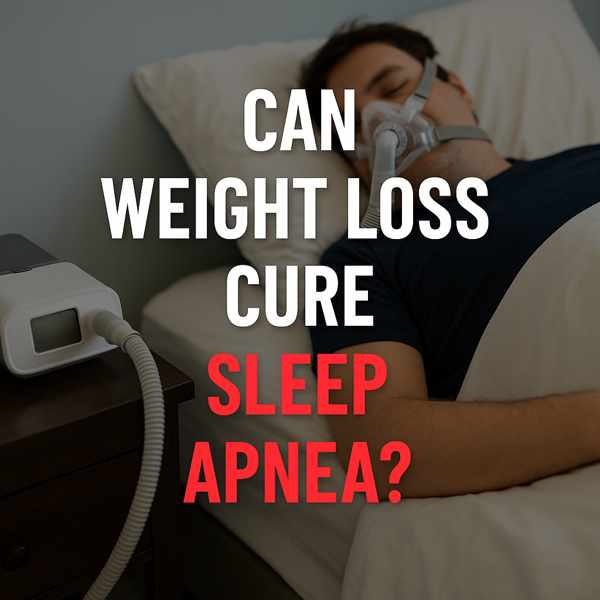Does Losing Weight Help with Sleep Apnea?

Many people with sleep apnea experience difficulty sleeping, loud snoring, and interrupted breathing patterns.
While not always a complete cure, weight loss often lowers the impact of sleep apnea significantly.
What Is Sleep Apnea?
Sleep apnea occurs when breathing repeatedly stops and starts during sleep.
Common symptoms include:
- Often reported by sleep partners
- Interrupted breathing patterns
- Excessive daytime tiredness
- Morning headaches or dry mouth
Why Excess Fat Matters
Carrying extra weight, especially around the neck and upper body, can put pressure on the airway during sleep.
Key risk factors include:
- High BMI (Body Mass Index)
- Narrows the airway path
- Can contribute to airway collapse
Can Weight Loss Cure Sleep Apnea?
Especially in individuals with mild to moderate OSA, lifestyle changes can be very effective.
Possible benefits of losing weight sleep apnea weight loss:
- Improved nighttime breathing
- Reduced risk of waking up during sleep
- More natural treatment options
- Feel more rested and alert
However, weight loss may not cure sleep apnea in all cases — especially if anatomical issues or severe OSA are present.
How Much Weight Loss Is Needed?
Even modest weight loss can have a big impact.
Tips:
- Focus on progress, not perfection
- Sustainable changes make a difference
- Notice snoring, energy, and daytime fatigue improvements
Natural Weight Loss Tips for Better Sleep
Effective strategies:
- Limit sugar and processed carbs
- Boosts metabolism and burns fat
- Helps open up the airway naturally
- Avoid alcohol and sedatives
Working with a nutritionist or sleep specialist can provide more personalized support.
When Weight Loss Isn't Enough
If symptoms continue, talk to your doctor about other options such as:
- CPAP therapy (Continuous Positive Airway Pressure)
- Oral appliances
- Surgery in severe cases
Conclusion
So, can weight loss cure sleep apnea? In many cases, it can greatly reduce the condition.
Talk to your healthcare provider, make informed decisions, and take proactive steps toward better health and rest.